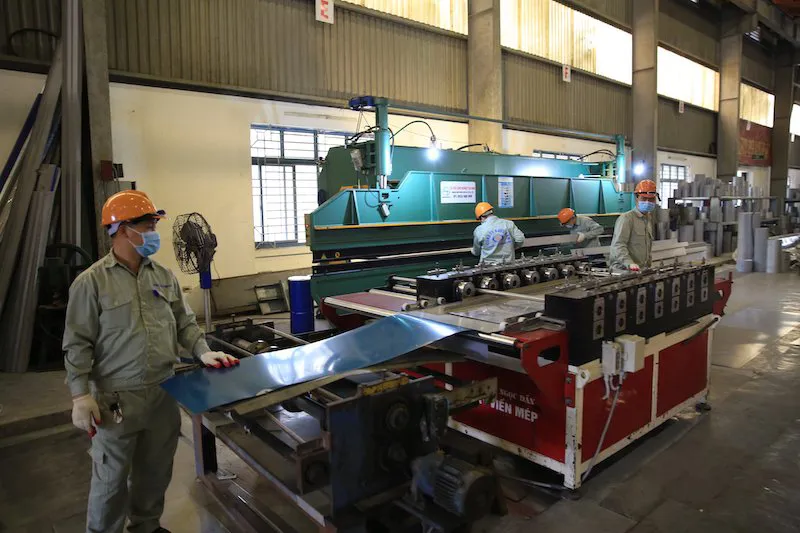Low minimum wage causes Vietnamese workers to struggle with living expenses
About 30% of Vietnamese workers said they always struggle to make ends meet because of their low income.
The current minimum wage is weakening workers' bargaining power. The employer argued that the (low) wage they pay workers is based on the regional minimum wage.
Therefore, with such a low income, many workers have to take out loans to pay for living expenses.
Local experts analyzed the topic at the seminar “Living wage - a multi-dimensional perspective” held by the Economic and Urban Newspaper (Kinh te & Do thi) on June 16.
| Vietnamese laborers with low wages are struggling with increased living expenses. Photo: kinhtedothi.vn |
At the event, Vu Minh Tien, Director of the Institute for Workers and Trade Unions, under the Vietnam General Confederation of Labor (VGCL), said that the minimum wage is the basis for the employer and the employee to negotiate the salary. Thus, the Government's promulgation of Decree No. 38 is very meaningful in the context that workers’ lives are difficult due to the high cost of living.
However, he also mentioned a recent survey showing that about 30% of Vietnamese workers said that they are always struggling to make ends meet because of their low income.
"Most of them cannot save money, especially when they have some costs to cover, such as medical expenses. They have to get loans, including through mortgage of social security book and identity cards for loans worth VND500.000 (US$21.4) to VND1 million (US$42.9), to pay house rent and buy rice," he told The Hanoi Times.
Their predicament stemmed from wages not being enough to pay for living expenses, according to the VGCL’s survey on the situation of labor, wages, income, spending, and living standards in Vietnam in 2022.
Specifically, around 12% of those surveyed have had to take out loans periodically, another 35.5% must apply for loans once every three or four months, and 34.8% once or twice a year.
| Vu Minh Tien, Director of the Institute for Workers and Trade Unions, under the Vietnam General Confederation of Labor. Photos: Lai Tan |
Ha Thi Phuong Anh, Chairwoman of the Plummy Garment Company’s union, said a basic family (husband and wife, two children) would need a monthly income of about VND12 million ($514.5).
“The current average salary for workers is not allowing them to afford a decent life. I’m sure about 50% of workers at the end of the month have to borrow money because of any incurred expenses,” she told The Hanoi Times.
Phuong Anh hoped along with the issuance of Decree 38 on increasing the regional minimum wage for laborers by 6% and the recent dialogue between Prime Minister Pham Minh Chinh and Vietnamese laborers, the Party, State and Government will facilitate the best policy for employees, so that "they are motivated to improve labor productivity and contribute to the development of the business in particular and the country's economy in general,” she underlined.
| Nguyen Thi Lan Huong, Former Director of the Institute of Labor and Social Sciences, under the Ministry of Labor, Invalids and Social Affairs |
Nguyen Thi Lan Huong, Former Director of the Institute of Labor and Social Sciences, under the Ministry of Labor, Invalids and Social Affairs, put forth some solutions to guarantee the stability of laborers’ living.
She said a living wage is an income that covers all necessary expenses such as food, clothing, accommodation, transportation, communication, social security, human development, and social integration. The living wage should be adjusted in accordance with economic development.
The living wage has to be based on the size of the household, where they live, and the occupational group they work in. “Thus, the living wage allows workers and their families to cover necessary expenses,” she emphasized.
Currently, some governments around the world have switched from the management of minimum wage to living wage. Therefore, Huong suggested that the hourly minimum wage must be implemented quickly in the context of the impossibility of the application of the living wage. “Therefore, it is necessary to rapidly enact the Law on Minimum Wage,” she recommended.














